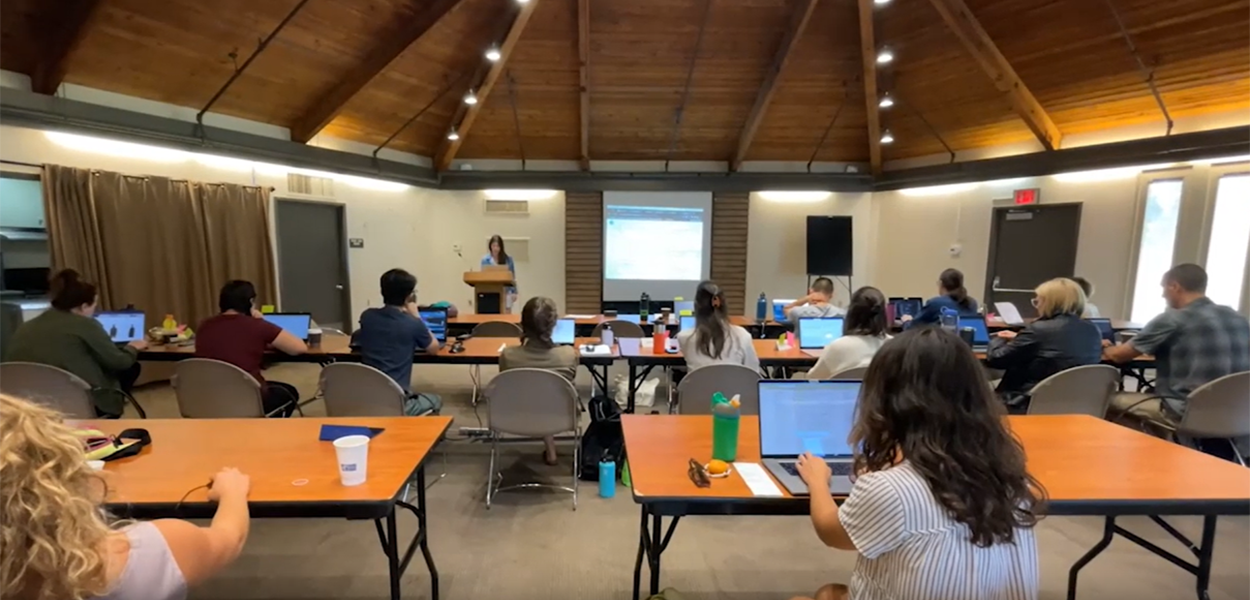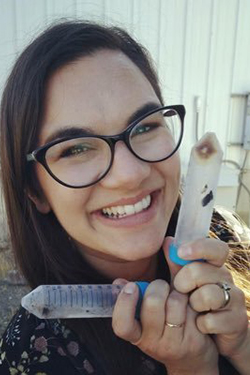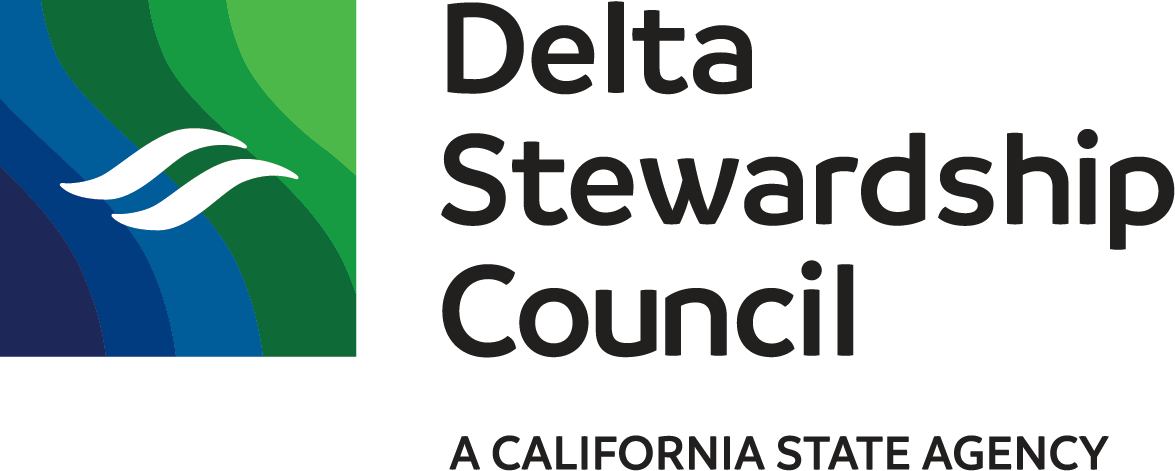
Making Every Day Earth Day:
Analyzing Data with the National Center for Ecological Analysis & Synthesis
April 22, 2024
By Senior Environmental Scientist Miranda Tilcock
Every year on April 22, we celebrate Earth Day, which originally started in the 1970s with a focus on recycling, using less electricity, and conserving water. Fast forward to today, Earth Day has become so much more and is everything from mitigating the impacts of climate change to environmental justice. For environmental scientists like me, doing research in various ecosystems on all sorts of species, every day can begin to feel like Earth Day. After all, in the Sacramento-San Joaquin Delta, we are doing everything we can to improve our corner of the world. This can feel tedious at times, and like we are not making much progress, but every bit counts, or in my case, every piece of data collected and analyzed is an important step forward.
One way to make a difference in the science community is by synthesizing long-term data sets. In ecology, data synthesis refers to integrating and combining data sets, tools, and theories from a variety of disciplines to identify important knowledge gaps. Data synthesis has become increasingly important as open science becomes more commonplace. Open science is a global movement to make scientific research processes and products accessible to all. Resources such as R statistical software and many publicly available long-term data sets support open science and allow many advances in the scientific community by creating opportunities for these large data sets to be synthesized by researchers.
Such access to long-term data sets is critical to understanding the environment of the past so that we can make more informed decisions about the future. With the help of organizations such as the National Center for Ecological Analysis & Synthesis, or “NCEAS” for short, the Delta Science Program Synthesis Working Group (SWG) has been bringing researchers together from all backgrounds to lead workshops on synthesis science. Our partnership with NCEAS is game-changing because it:
- trains early and mid-career scientists on the latest coding and statistical tools;
- enables synthesis working groups to answer real-world questions of relevance to managers;
- brings together scientists from across state and federal agencies and academia and fosters collaboration and networks.
The first workshop series in 2021 focused on analyzing drivers of the estuarine aquatic food supply. The participants were divided into two distinct subgroups focusing on the following:
- The effect of flood management on estuary health.
- Identifying the drivers of food web dynamics on an estuary scale.
Since these groups met, they have created R packages, published data sets, and finalized articles that have been published or are in the process of being published. For links and more information related to the 2021 NCEAS/SWG group go to the website linked here.
“The NCEAS trainings were very well structured and effectively provided us with the tools and skills required to discover, synthesize, and explore the datasets critical to the completion of our infrastructure synthesis project that formulates a costs and benefits analysis of Delta levees.”
– Interagency Ecological Program Senior Environmental Scientist Trinh Nguyen
The most recent cohort of NCEAS and SWG participants began in 2023. The week-long training workshops were held in June, August, and October at UC Davis. Groups are continuing to work together on their research questions with the goal of presenting their results to the council later this year. The focus of this collaboration is on expanding multi-benefit approaches to managing the Delta as a social-ecological system and investigating the integration of human dimension data into research and management decision-making. This may include the development of integrated frameworks, data visualization tools, and models of social-ecological systems that evaluate, for example…
- how ecosystem restoration projects benefit and burden human communities, with an emphasis on environmental justice;
- the costs and benefits of different strategies for managing invasive species while balancing recreational uses; and
- the sensitivity of social metrics to different socio-political or environmental scales.
“Through NCEAS, I learned cutting-edge data synthesis techniques. I use them every day in my job as a synthesis scientist in the Delta. I'm so grateful that I could participate.”
– Delta Science Program Senior Environmental Scientist Dr. Denise Colombano
You don’t have to work with NCEAS to do synthesis science, but it sure does make it a lot easier! Even if you can’t participate in a workshop, the Delta Science Program makes all the lessons and R tutorials publicly available on our website. Follow along with the lessons for the 2021 and 2023 workshops to increase your understanding of data synthesis.
So, as we celebrate Earth Day (every day), be on the lookout for updates and news on the latest research from these NCEAS and the synthesis teams. This will include but not be limited to publications, new R packages, published data sets and more! And, if you want to learn more about the benefits of open science, check out what my colleagues are saying in the November 2023 edition of the Delta Science Program’s Delta Breeze newsletter.
About the Author

Miranda Tilcock
Miranda Tilcock is a Senior Environmental Scientist at the Delta Science Program where she coordinates with NCEAS to provide synthesis workshop opportunities. Prior to joining the Council as staff in 2023, she worked at UC Davis’ Center for Watershed Sciences using fish eye lenses and isotopes, such as Chinook salmon eyes, to reconstruct their life history. Her work on fish eyes and isotopes was featured on National Public Radio’s Science Friday. Miranda enjoys hanging out with her three children when she's not working, as well as baking bread and other tasty treats.

